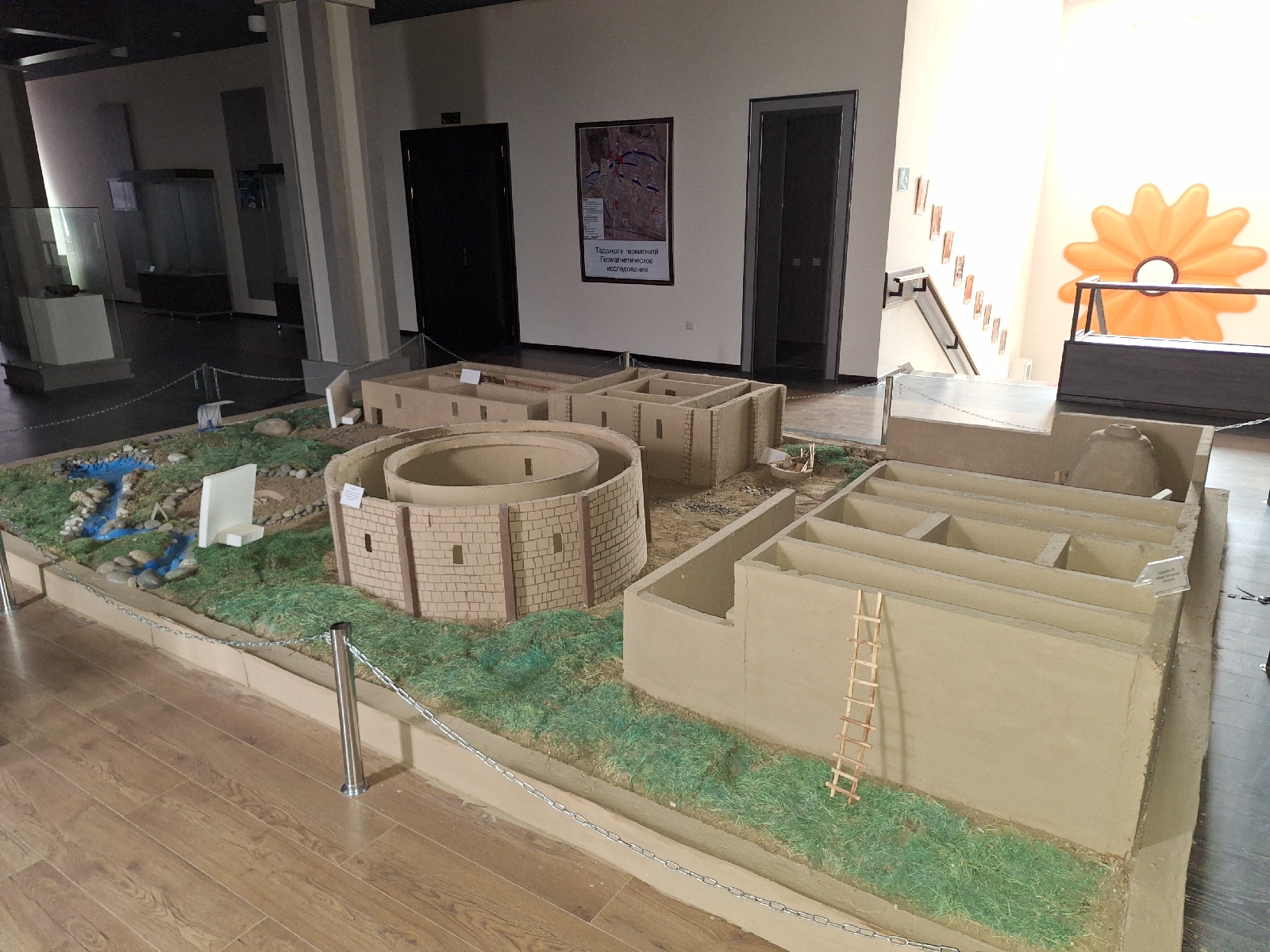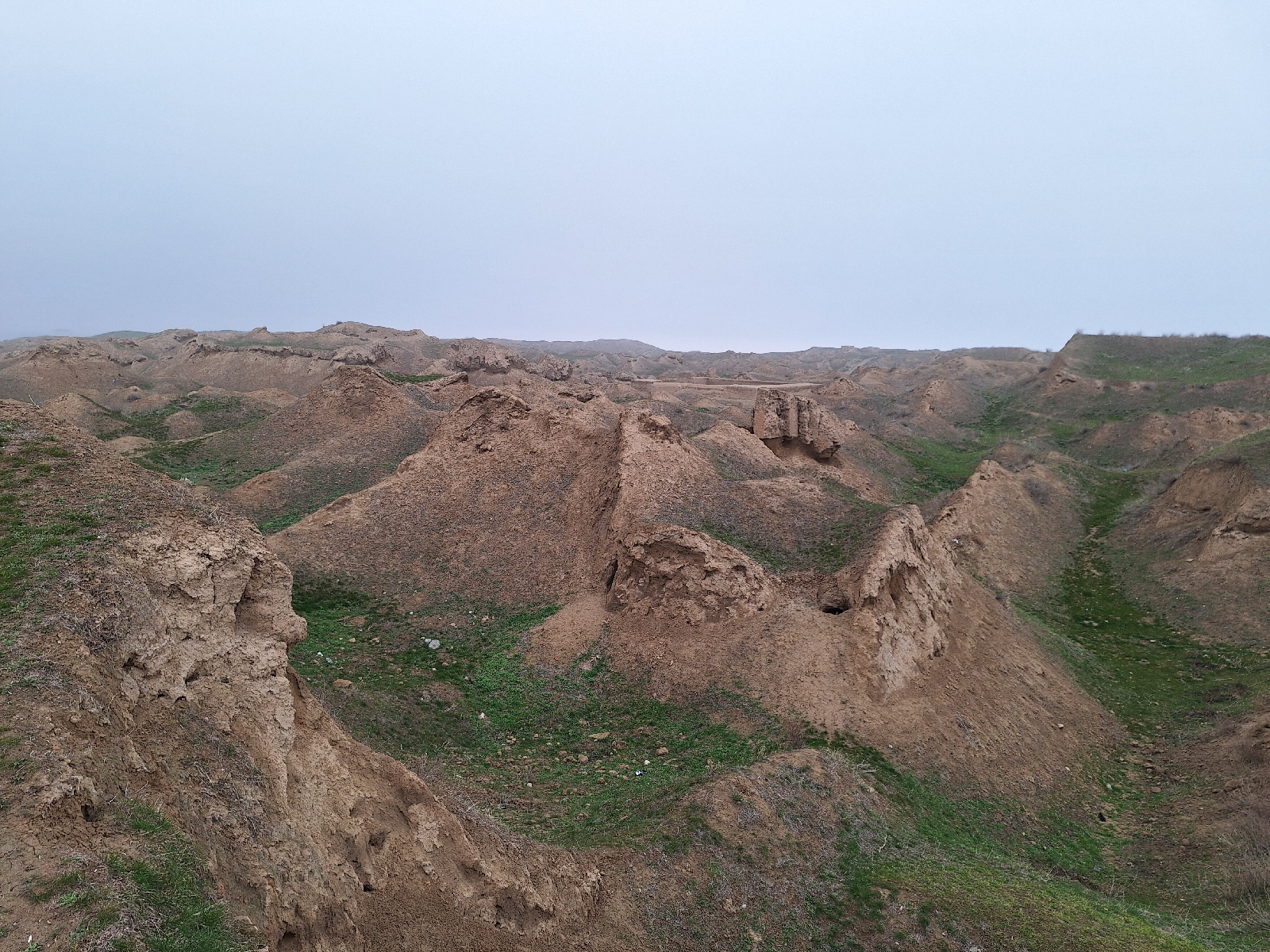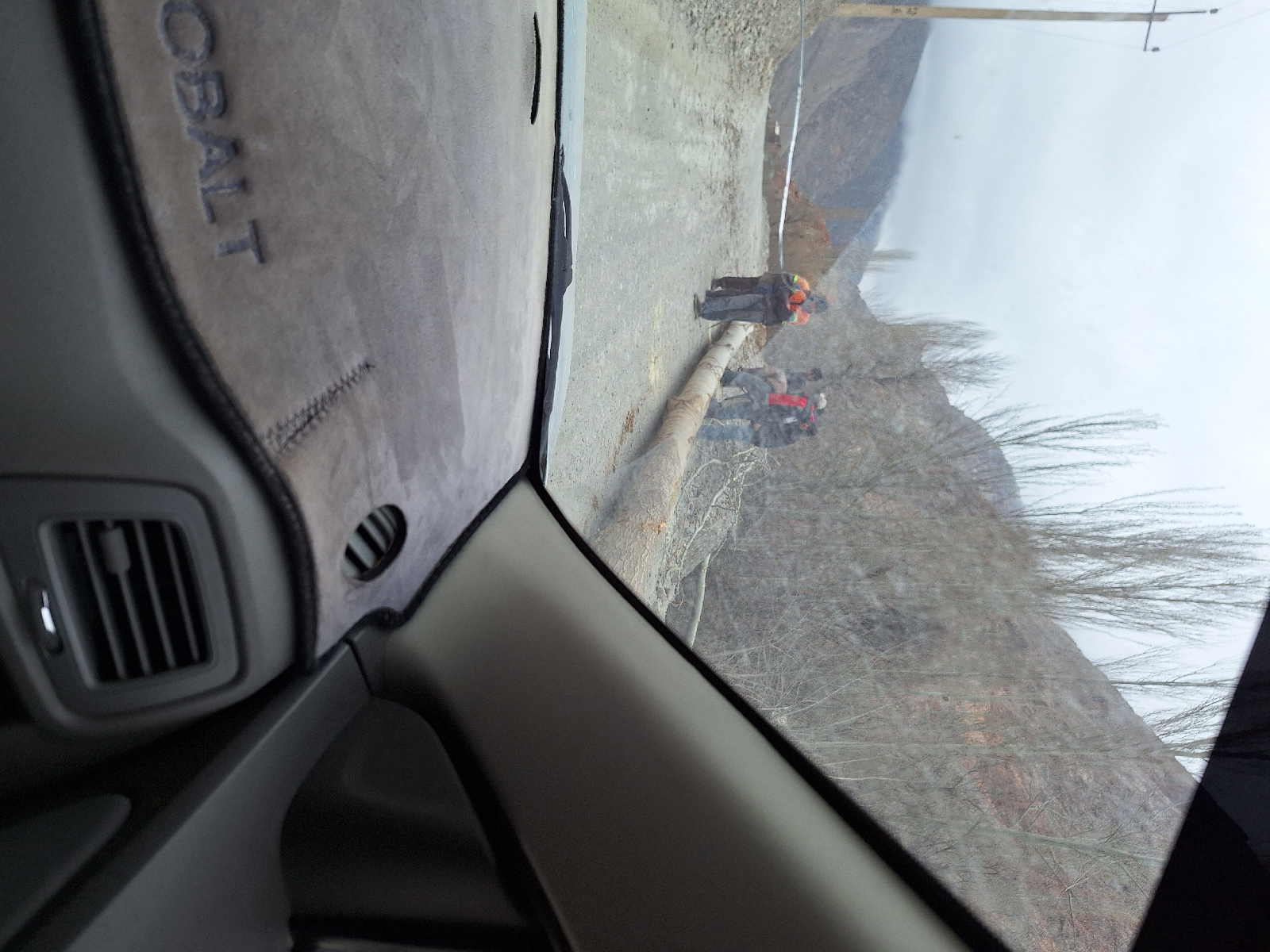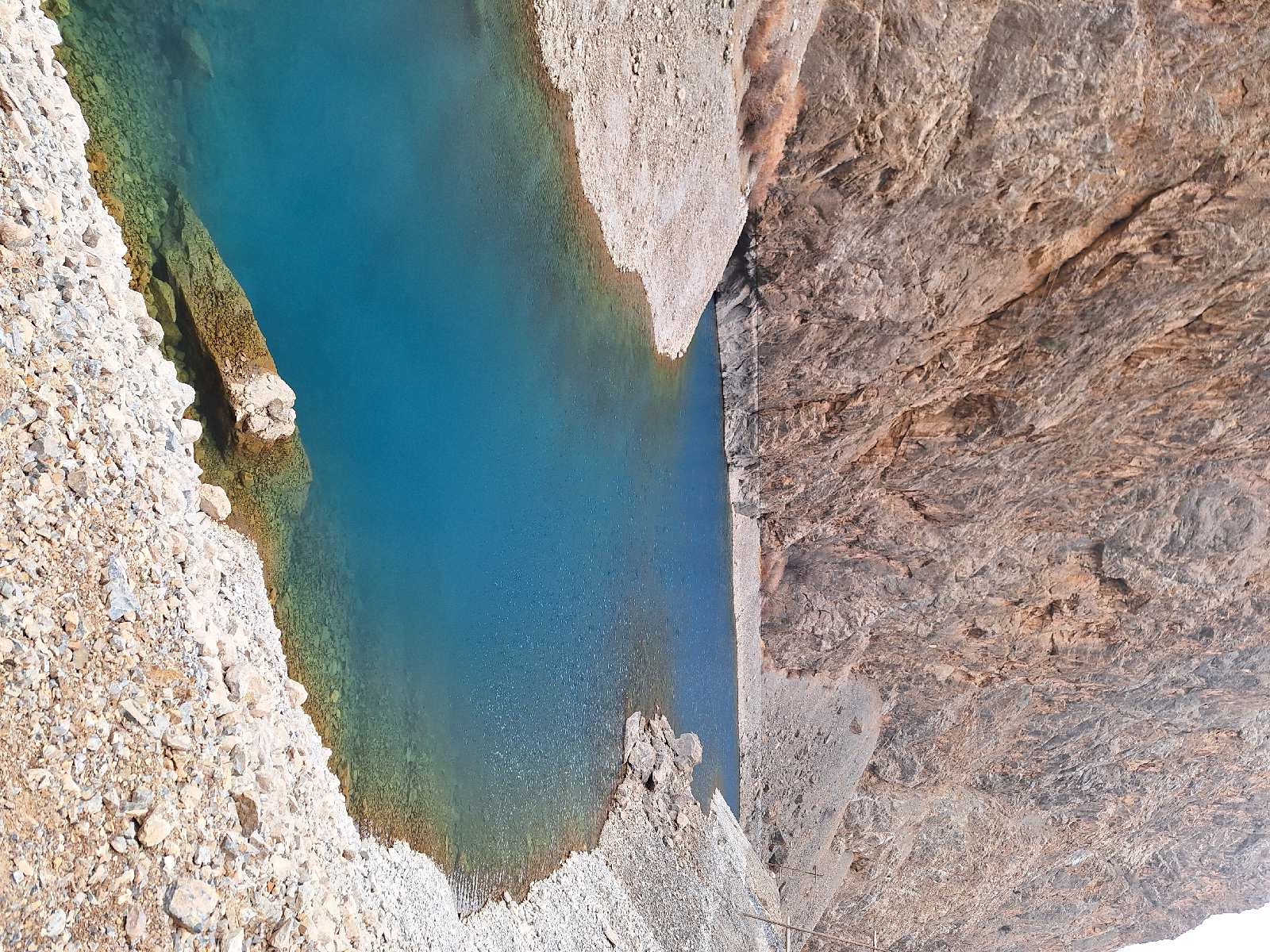The car arrived at 8:00 in the rain. The forecast for Panjikant was better: just clouds. The guide from yesterday (Fayo) was already in the car. He is ethnically Tajik, his parents having moved from Dushanbe to Samarkand in Soviet days. He did not want to miss a chance to visit Tajikistan (1), especially with someone else covering the transportation cost. For my part, I got an Uzbek and Tajik speaking traveling companion; a win/win.
Forty kms down a broken, pothole strewn road had drivers swerving in all directions. "Those drivers must think they're cats with 9 lives" Fayo said to me (in English) and the driver (in Uzbek). I assumed we would switch cars at the border. "No, the driver crosses all the time; it should not take long." We got out of the car and crossed on foot. Oddly enough, I had to show Fayo where to go a couple of times (2), as we cleared immigration and customs. While he is local, I have a lot of experience with border crossings.
As we waited for the car on the Tajik side (3), Fayo grew impatient. He was making mental notes about possible tours and was calculating out loud the cost of using two different cars in the two countries. I was not fussed, I was enjoying the local scene of people coming and going, including Tajiks holding flowers and balloons who had come to meet family at the border. Eventually (4), the white Chevy (5) appeared, and the creaky metal gate opened (6).
Our first stop was the archeological dig at Sarasm. While the entrance gate was grand, the digs were underwhelming. The small museum may have been better without a power blackout; we used our phone flashlights to read the signs.
On to Panjkant to see the ruins of the old city. Lots of dirt mounds, trash and wind driven sleet suggested we move on. At the central market, Fayo reminisced about coming to the market as a kid: "it hasn't changed at all" (7). Finding an open restaurant (8), we grabbed some lunch before heading to the Fann Mountains (9).
The Chinese have mining operations in the mountains (10), with heavy machinery sharing the dirt road with the car. On the road up to the mountains, we passed goat herds, villages where people wear traditional Tajik dress, and we even saw a small landslide cascading down a mountain up a side valley. I knew Fayo was my companion, not my guide, because he was taking as many pictures as I was. As we ascended the mountains we left the rain behind.
Our destination was a series of lakes high in the mountains. While there are 7 lakes in all, time limited our visit to the lowest three. The first lake we encountered (the last in descending order) was a beautiful shade of blue. Ascending further, I noted to absence of a stream or brook between the lakes. "The water flows underground, which is why the lower lakes are cleanest," Fayo explained.
Back at the border at outbound Tajik immigration, I ventured the traditional greeting "asalomu aleikum" (11), producing a wide smile from the immigration officer. Waiting for the car, the rain mixed with snow, and we drove back to Samarkand in the gathering darkness.
(1) After posting some pictures from Tajikstan, his friends were surprised he was not home. "Why miss a chance to travel when you can?" he told them. I understand the sentiment.
(2) For example, you enter the outbound Uzbek immigration building where it says "Exit" because you are leaving (exiting) the country.
(3) Both outbound and inbound customs checks involve thorough searches of the cars, including a check of the undercarriage by a customs official in a trench under the roadway.
(4) Loss of electrical power at the border crossings did not speed the process.
(5) I was surprised that a substantial majority of the cars in Uzbekistan are Chevies, most of them white. After the fall of the Soviet Union, Daewoo opened a car factory in Andijan, in the far east of Uzbekistan. GM took over in 2004, making Chevy the local car brand (and subject to much lower purchase taxes).
(6) The Uzbek side had formidable gates and thick rails protruding from the ground at an angle that would impale a car trying drive through. These are lowered when cars are cleared to pass.
(7) For a number of years, the border between Uzbekistan and Tajikistan was closed. As a result, Fayo did not see his maternal grandfather (living in Dushanbe, the Tajik capital) for over 10 years.
(8) Ramadan began on Monday. During this holy month, Muslims fast during daytime hours.
(9) We chatted companionably about our families. Showing him a picture of my wife, he replied: "I married a beautiful woman too (a) even though I'm ugly. We're just alike."
(a) His wife-to-be was a neighbor of his sister's father-in-law. She was helping out at a party he attended. Soon, he just happened to be outside her house in his car many mornings when she needed a ride to University.
(10) Unable to repay Chinese loans, the Tajik government granted mining concessions instead.
(11) Derived from the Arabic meaning "peace be with you." Shalom in Hebrew has the same Semitic roots.
Statue at Saracm Museum, illuminated by the phone.
Diorama at Sarasm
Ruins of Ancient Pajikant
The Bazaar
Keeping the spices dry
On the road up to Fann Mountains
First Lake
Climbing up from the first lake
Second lake
Third Fann Lake
Back in Uzbekistan as the rain changed to snow














No comments:
Post a Comment